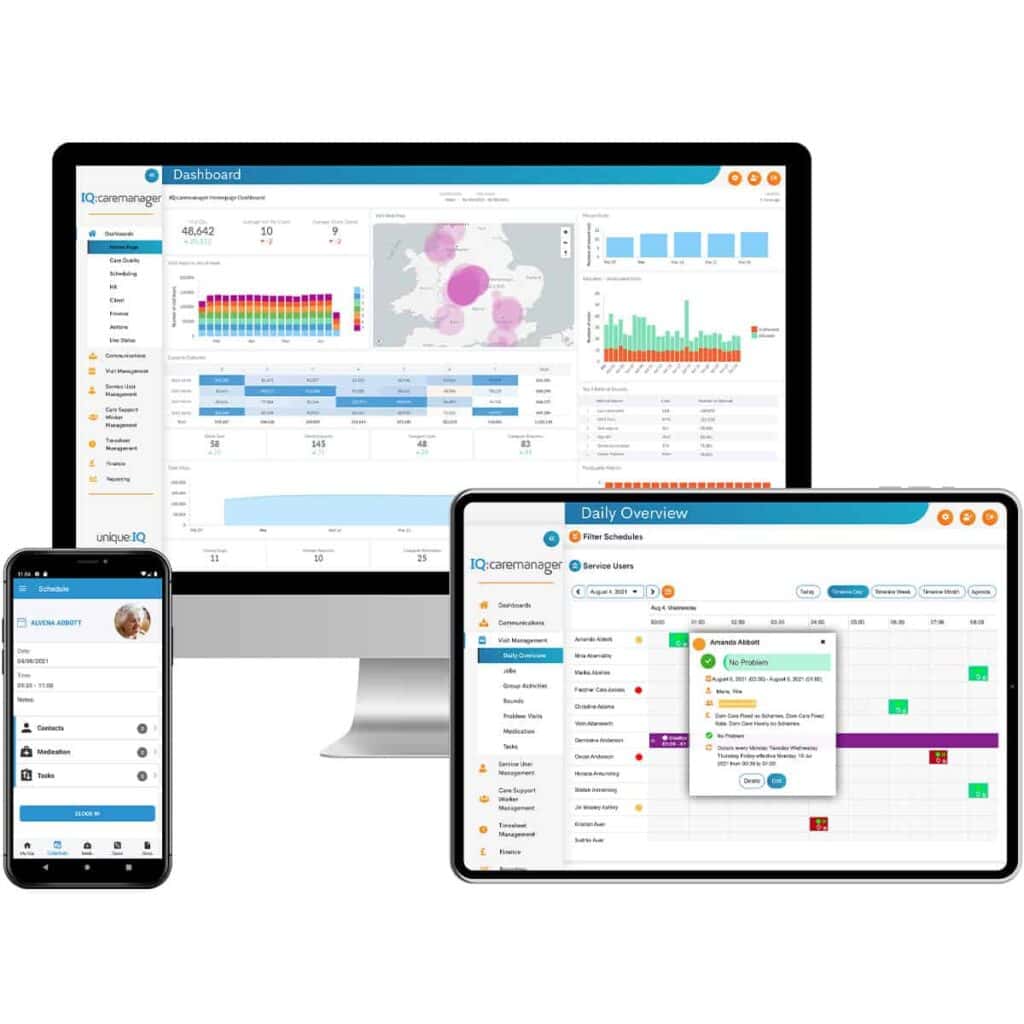
Prevent time theft with workforce management software
Time theft is a common issue for many modern businesses, especially those that place their trust in remote employees who spend much of their working day under no supervision and away from the workplace. This blog addresses how time theft can be reduced in the workplace, thanks to a mixture of innovative clocking systems and management techniques.
Prevent time theft with workforce management software
Did you know that workforce management software can help you to manage workers that operate in remote locations? Get in touch to talk about our workplace management solutions.


What is workplace time theft?
Time theft in the workplace is a common and expensive problem, especially for businesses with employees that work remotely or within a client’s premises. Time theft is what happens when an employee gets paid for the time they did not work. There are a lot of different types of time theft, but essentially it means a person claiming wages without having worked to earn them. Some studies even suggest that up to forty-three percent of hourly workers surveyed admit to exaggerating the amount of time they work during their shifts.
Types of time theft
Abusing paper timesheets – paper timesheets are notoriously difficult to manage. Not only can they be easily lost, damaged or taken to be collected or returned, but employers must rely on the bond of trust that their employees are filling out timesheets honestly.
- Timesheet fraud – Some employees may also round up the time they work on to the nearest hour and inflate their attendance unfairly.
- Buddy punching – companies that rely on time clocks can easily have a situation where employees clock in for each other if they are running late.
- Proxy attendance – similar to buddy punching, proxy attendance occurs when one employee does not attend work at all but gets a fellow employee to sign an attendance sheet in their stead.
- Elongated breaks and lunches – while employees should take breaks, problems can arise when employees abuse their breaks and personal time, causing major productivity issues.
- Unauthorised overtime – employees may need to work overtime on some occasions, but time theft can occur when employees try to pad their timesheet with extra overtime without authorisation from a manager.
5 ways to prevent time theft and improve performance in the workplace
- Install time and attendance software
Businesses that have no methods of checking and verifying the hours that their remote staff have worked are leaving themselves wide open to time theft. Time and attendance solutions are crucial in ensuring that employees aren’t attending to personal matters on work time; they help to guarantee that employees are only paid what they have earned, and they also help to keep track of things like regular absence, patterns of productivity and other factors that can help identify time theft.
- Open lines of communication between all staff
Employers must be clear on the expectations and company policies that their team must adhere to when out working remotely. There must be strict rules on what is allowed and what is not allowed when on the clock – there should be no ambiguity here. Likewise, if employees have a problem, they must also feel they can talk to the management about it rather than attempting to disguise it with time theft.
- Improve accountability at work
This links in with performance management; employees often need to be incentivised to be accountable for what they do at work. This means setting targets, monitoring goals and making employees feel like they are part of a team. If they feel they are not going to hit their targets, or if they feel they are ‘letting the side down’, they are less likely to indulge in time theft and more likely to become productive members of the workforce.
- Be understanding
Employers need to understand that everyone needs a rest now and then. Their team will function better if they are not working their hands to the bone, and productivity will rise if break structures are flexible for remote employees. If employees are aware that they can take breaks and relax when they need to, they will be less likely to use company time to recharge their batteries.
- Do away with paperwork
Human error is actually one of the most common reasons for time theft – making mistakes on hand-written timesheets can end up costing businesses thousands and it can all be put down to a simple lack of concentration from one staff member. Switch to an automated electronic system that keeps track of everything and frees up valuable time in the HR department.
Want to know more about the software that can help your business? Check out our workforce management hub.